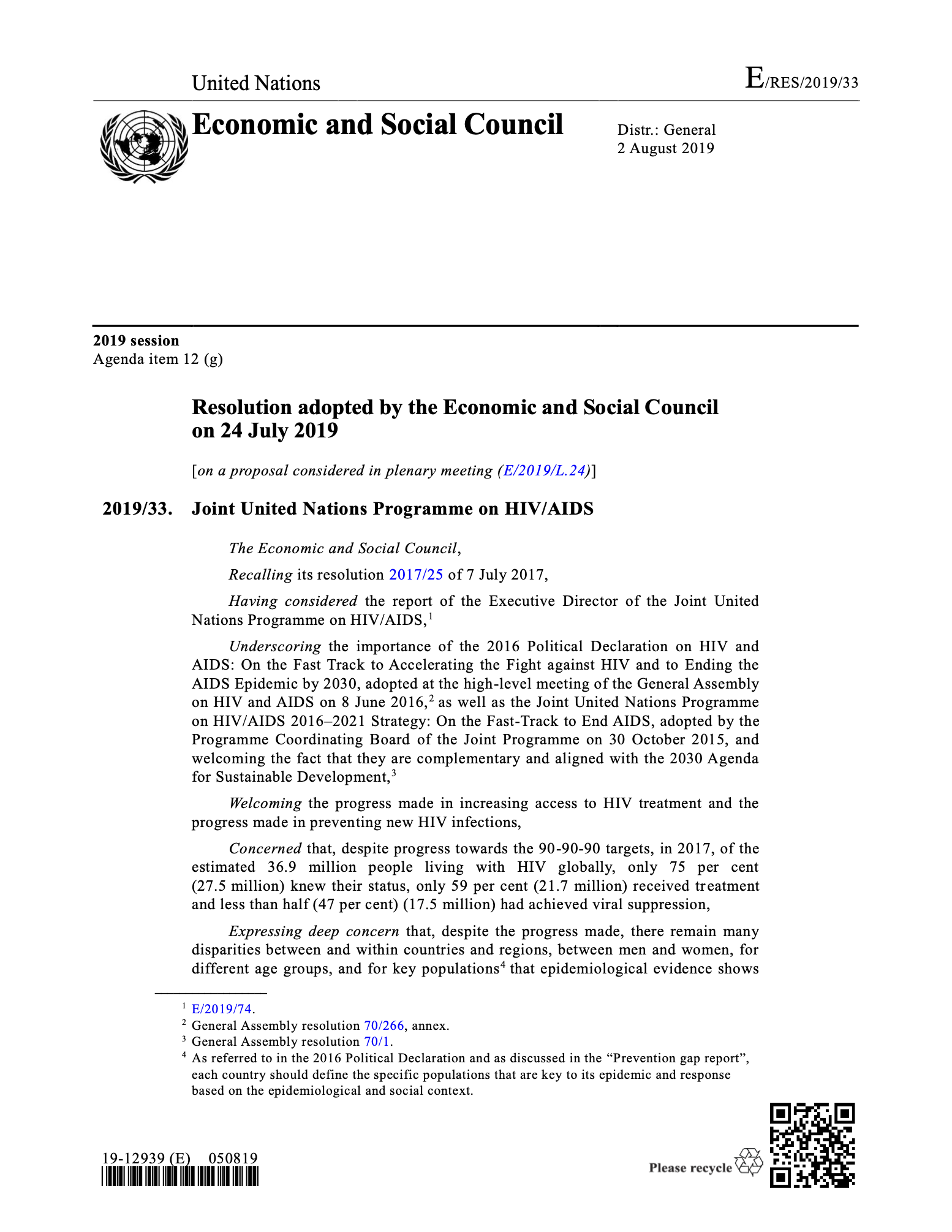2019 UNESC Resolution on UNAIDS
Analysis of precedential value
The United Nations Economic and Social Council (UNESC) serves as the UN’s central forum for advancing sustainable development’s economic, social and environmental dimensions. It is composed of 54 Member States elected regularly by the UN General Assembly.
This resolution was adopted after a proposal from the President of the Council, Inga Rhonda King (Saint Vincent and the Grenadines), on the basis of informal consultations.
Used as precedent
access to health products, gender equality, human rights, key and vulnerable populations
“Calls for urgent action and partnership by Member States, the United Nations system, civil society, local communities, the private sector and other stakeholders to scale up evidence-based HIV prevention, testing, treatment, care and retention, including access to safe, effective, quality and affordable medicines, including generics, viral load testing in pursuit of achieving viral load suppression, and tuberculosis preventative treatment, to ensure that those services reach the people who need them the most, including key populations that epidemiological evidence shows to be globally at higher risk of HIV infection, adolescent girls and young women, and calls for reinvigorated efforts to protect human rights and promote gender equality and to address social risk factors, including gender-based violence, as well as social and economic determinants of health.” (paragraph 4)
access to health products
“Urges Member States to urgently remove, where feasible, obstacles that limit the capacity of low- and middle-income countries to provide affordable and effective HIV prevention and treatment products, diagnostics, medicines and commodities and other pharmaceutical products.” (paragraph 5)
positive legal determinants
“Recognizes that the Sustainable Development Goals provide for the elimination of discriminatory laws, policies and practices, which will be important to reduce barriers to an effective HIV response, including for vulnerable and key populations that epidemiological evidence shows to be globally at higher risk of HIV infection.” (paragraph 9)
